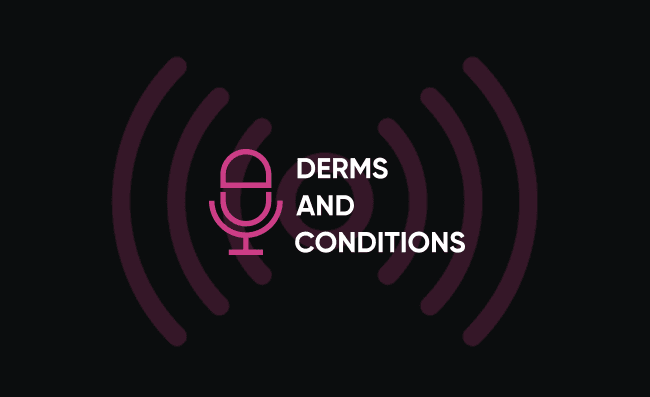Derms and Conditions Podcast Episode 78:
Improving Your Clinical Approach To Chronic Urticaria
Featuring Jason Hawkes, MD, MS, FAAD | Release Date: April 25, 2024
In this episode of Derms and Conditions, host James Q Del Rosso, DO, engages in a comprehensive discussion with Jason Hawkes, MD, MS, FAAD, a medical dermatologist in Rocklin, CA, on chronic spontaneous urticaria (CSU). They discuss CSU’s position in the spectrum of urticarial conditions, explore differential diagnoses and treatment strategies, and offer a wealth of valuable insights into this complex disease.
They begin by defining urticaria as a collection of conditions, explaining that this is often not well-delineated in textbooks or literature. Dr Hawkes categorizes urticaria into acute and chronic types, with chronic further divided into chronic inducible urticaria, which results from an identifiable trigger, and chronic spontaneous urticaria, which has no clear cause.
They then explore differential diagnoses for CSU, including drug-induced urticarial reactions and conditions like mastocytosis or urticarial bullous pemphigoid that require thorough consideration.
Transitioning to treatment strategies, they evaluate the use of systemic corticosteroids like prednisone for short-term relief in patients with CSU, taking into account reservations about long-term efficacy and potential side effects. Antihistamines are also highlighted for their rapid action, with Dr Hawkes encouraging prompt dosage adjustments if initial doses are ineffective.
The conversation shifts to omalizumab, an injectable anti-IgE monoclonal antibody that has waned in popularity among dermatologists due to practical limitations and concerns over anaphylaxis risk. However, it is highlighted as a very effective treatment option for many patients with CSU, as it is amenable to office administration with low rates of anaphylaxis in real-world practice and has a broad consensus for use in guidelines.
They conclude by touching on newer therapies in development that target alternative mechanisms, such as BTK and SYK inhibitors, which will broaden the therapeutic alternatives for patients with CSU.
Tune into the full episode to gain a deeper understanding of CSU and glean invaluable insights into the nuances of this multifaceted condition.
